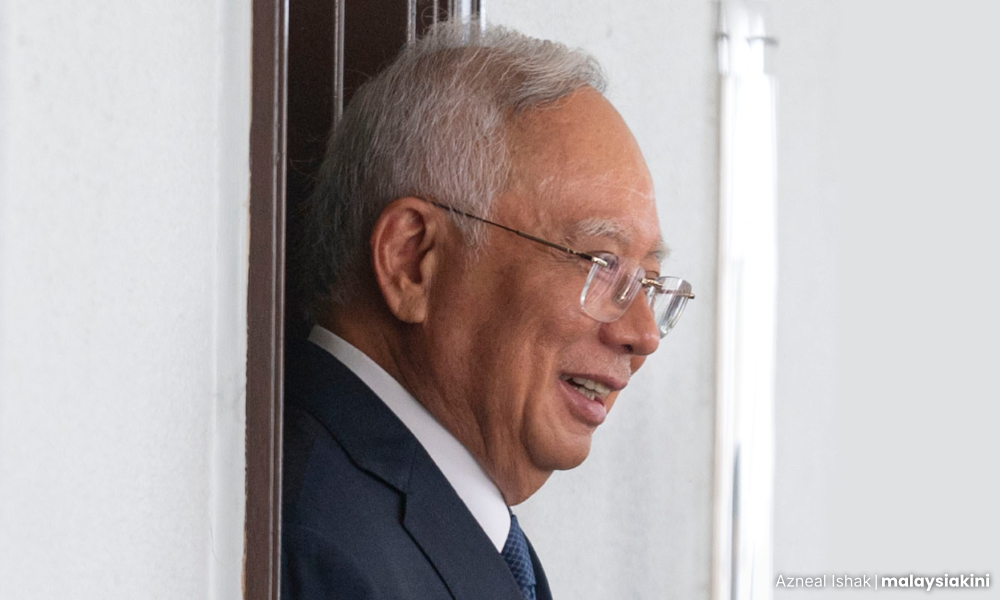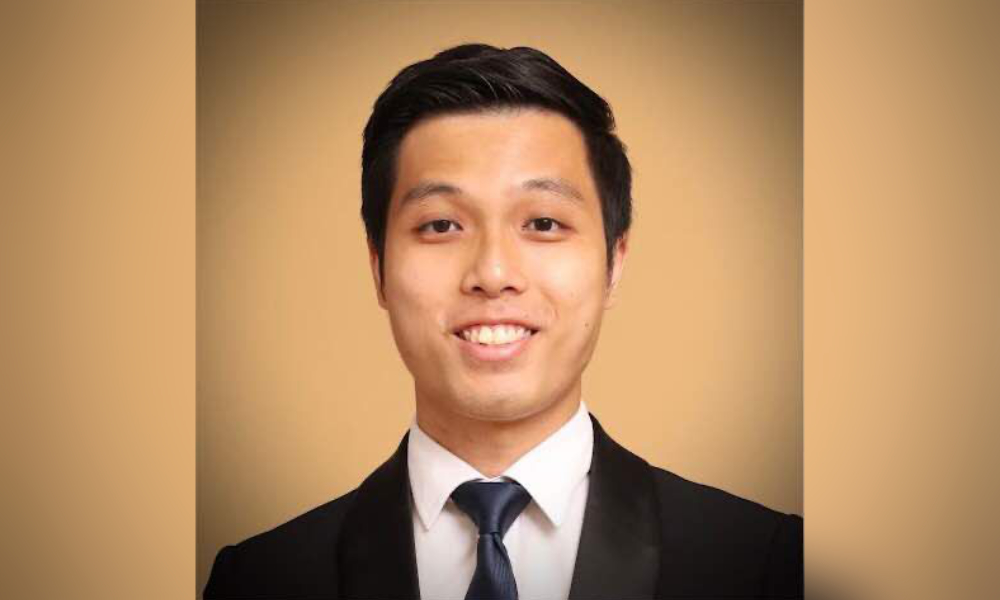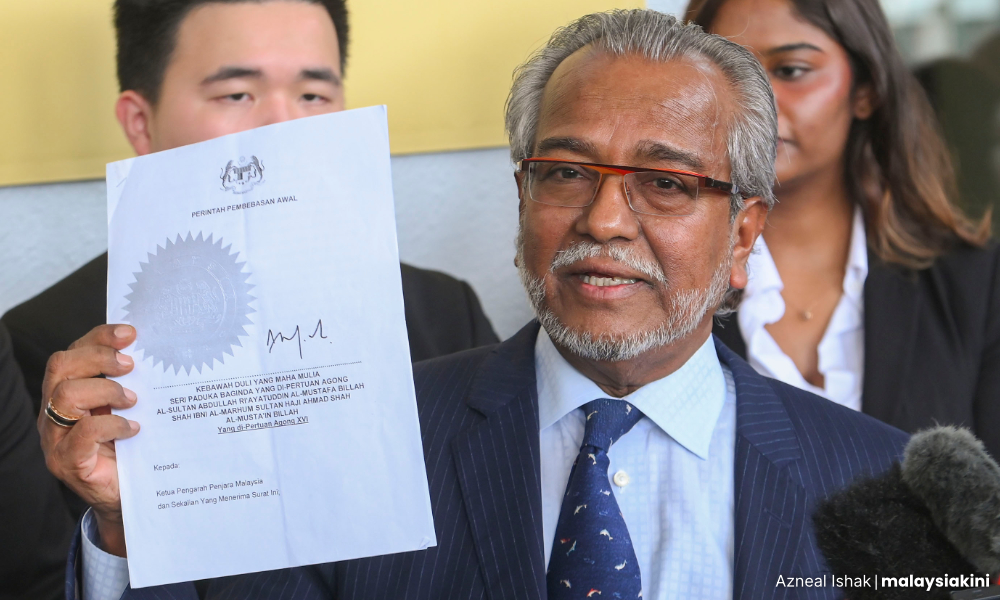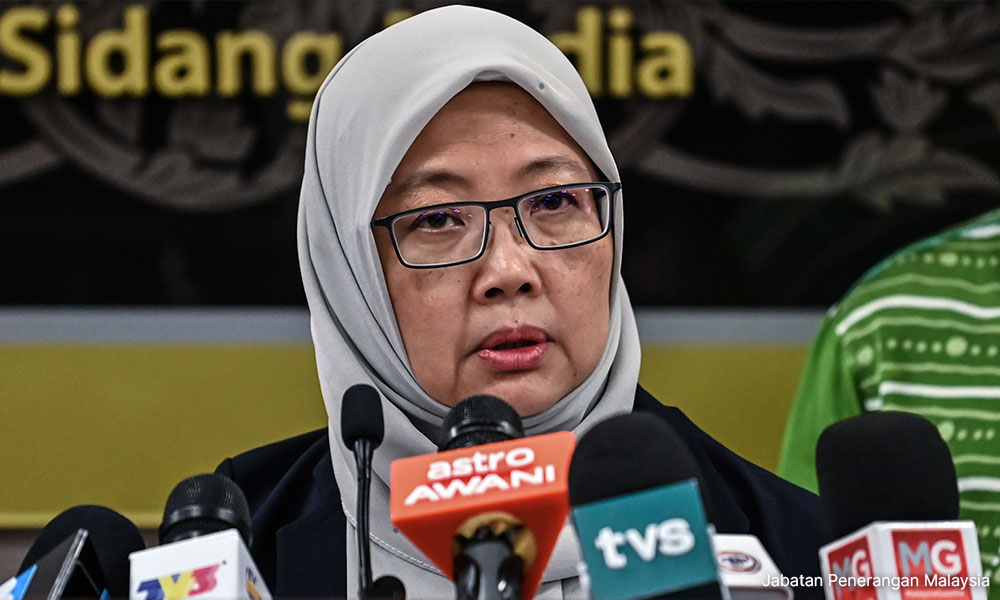A law governing Pardons can be enacted by Parliament. Yes, it will be automatically govern the Pardons Board in the Federal Territories, and all the States if the respective States thereafter adopts it through State enactments.
After one is convicted and sentenced. There are several things that can happen besides PARDON by King/Rulers - including 'parole', etc
Malaysia has 13 States, and 3 Federal Territories - Therefore 13 Rulers, and the King has the power of pardon. It all depends where the crime in committed and/or tried. So 14 PARDON BOARDS - separate from each other.
The King/Rulers power of pardon is not a power that the King or ruler can simply do as he pleases > The King/Ruler only acts on the advice of the Pardon Board - hence if the Pardon Board advises dropping the sentence from 12 years to 6 years, then the King must do so even if he disagrees.
Can the King refuse the advise of the Pardon Board - theoretically and reasonably NO. There is no specific provisions in the Constitution, but the principle is evident
What happens if the King refused to pardon Najib as advised by the Pardons Board? Now, he has to do as was advised...and usually the King will issue the Pardon himself, but questions arise with Najib's pardon as the media statement was issued by the Pardons Board with the Prime Minister's Department letterhead. {see earlier post, and see the difference with Anwar's pardon and Najib's pardon announcement - More about Najib's Pardon - Is the Pardons Board under the Cabinet? What is FULL PARDON? AG must explain and clarify confusions ...?
DOUBLE STANDARDS IN GIVING PARDONS??
There are tens of thousands of convicted criminals in Malaysia, and there are also thousands who have already served their prison sentence or paid their fine, who are still disqualified from contesting in elections or even holding positions in societies for 5 years(or more) - AND they all need a PARDON from the King/Rulers.
A recent media report revealed that these 'lesser' people even after the applied for Pardon, never even received any communication back from the Pardons Board... At the very least, a communication saying that their petition/request for pardon had been received and will be processed soon would be good...
...angry that her brother, who's been languishing in prison since 2001, has not had a shot at a royal pardon, while a politician recently had his sentence halved after spending barely two years behind bars."We are mad. The difference is that we are common people. So, no one is looking at us," she lamented to Malaysiakini....In 2020, the family wrote to the Pardons Board but never heard back....Intan strongly believes that a "VIP", such as a politician, could get an express pathway to pardon, as opposed to a common prisoner."Please don't have double standards. (It's as if) if you are a 'somebody', you are a bit special," she said.
So, How many petitions for pardon have been submitted to the King and/or various Rulers? How many of these pardon petitions have been considered and decided upon - and the results communicated back to the petitioner - rejection, approvals - sentence reduced/commuted/etc, never even had any communication back from the King/Rulers? Did Anwar Ibrahim's and Najib's pardon jump the queue and get preferential treatment? ONLY IF A MP/SENATOR ASK THIS QUESTION IN PARLIAMENT WOULD MALAYSIANS GET AN ANSWER - Sadly transparency is lacking even with regards the King/Rulers?
As there are 13 plus 1 different pardon boards in Malaysia - there may be different rules/procedures(if there is) - but sadly there seems to be in many cases not even an address/office of these different Pardon Boards for people to even follow-up and find out what is happening to their petition for pardons?
Najib, as soon as he was sent to jail following the dismissal of his final appeal by the Federal Court applied for a pardon...YUP, as there are no clear rules, everyone can apply for a Pardon to the King/Rulers after they fail in their final appeal in the courts - NAY - nothing is actually even stopping them to apply for pardon after they are first convicted - i.e. even Syed Saddiq, who was recently convicted at the High Court can apply to the King/Ruler for Pardon now...There is NO CLEAR RULES OR GUIDELINES for the Pardon Procedure in Malaysia that applies to the pardon processes today that guide/govern the 14 different Pardon Boards.
Now, consider PAROLE, there are some clear guidelines
a prisoner shall only be eligible to be considered for parole-
(a) if he is sentenced to a minimum of one year imprisonment for any offence other than the offences prescribed in the Fourth Schedule;
(b) subject to subsection (7), after he has served at least half of his term of imprisonment without taking into account the remission of sentence granted to him under section 44; and
(c) after he has undergone a rehabilitation program approved by the Commissioner General while serving his sentence of imprisonment....[46E Eligibility for parole, PRISON ACT 1995]
For parole, it is also stated that one can apply for parole only ... '...such prisoner shall be eligible to be considered for parole only after the final decision of such pending appeal has been made...' This means Syed Saddiq still cannot apply for parole...only after all his appeals are over. Does this also apply to Pardons - or can the King Pardon Syed Saddiq now, before his appeal is heard?
Parole is (d)"parole" means the release of a prisoner to serve any part of his sentence of imprisonment outside prison pursuant to a Parole Order;. Now, all members of the Parole Board are also appointed by the KING - '...members who shall be appointed by the Yang di-Pertuan Agong...' Now, Parole is different from PARDON by King/Ruler of State.
Another problem with the PARDONS BOARD is the composition and their independence... There are 5 members according to the Federal Constitution -
(5) The Pardons Board constituted for each State shall consist of the Attorney General of the Federation, the Chief Minister of the State and not more than three other members, who shall be appointed by the Ruler or Yang di-Pertua Negeri; but the Attorney General may from time to time by instrument in writing delegate his functions as a member of the Board to any other person, and the Ruler or Yang di-Pertua Negeri may appoint any person to exercise temporarily the functions of any member of the Board appointed by him who is absent or unable to act....(11) For the purpose of this Article, there shall be constituted a single Pardons Board for the Federal Territories of Kuala Lumpur, Labuan and Putrajaya and the provisions of Clauses (5), (6), (7), (8) and (9) shall apply mutatis mutandis to the Pardons Board under this Clause except that reference to "Ruler or Yang di-Pertua Negeri" shall be construed as reference to the Yang di-Pertuan Agong and reference to "Chief Minister of the State" shall be construed as reference to the Minister responsible for the Federal Territories of Kuala Lumpur, Labuan and Putrajaya.(Art. 42 Federal Constitution)
So, beside the AG(or his/her rep) and the Chief Minister(or the Federal Minister), there are 3 others, and reasonably these 3 members will be appointed by the King/Ruler on the advice of the Prime Minister or the the Chief Minister of the State.
As the King/Ruler acts on '...be exercised on the advice of a Pardons Board constituted for that State in accordance with Clause (5)...' the question that arises, is that WHO HAS A VOTE in the Pardon's Board? Does the AG and Chief Minister(Federal Minister) have a vote too? Does the King and/or State Ruler also have a vote - as presider of Pardons Board meetings?
Should there be reforms - whereby the appointment of members of the Pardon be done by Parliament(or State Parliament) who shall advise the King/Ruler, rather than the Prime Minister or Chief Minister)? This is in light of the fact of Anwar's and Najib's pardon - where they were both persons closedly related to the Prime Minister(or government of the day) - where they were key members of the parties in government?
Should the AG have NO VOTING RIGHTS? Likewise, the Chief Minister(or Federal Minister) have no voting rights - just observer status?
Does the King (or State Ruler) have voting rights, considering that he Presides the Pardons Board meetings? I think not - it is ONLY the Pardons Board that decides. The King or Ruler sits in to better understand the reasons for the decision - that is all. After all, the relevant Article is clear that pardon powers be exercised on the advice of the Pardons Board. Although Art 42(4) clearly states that this is the case for State Rulers, it is rationalle and reasonable to imply that the same applies to the KING...
(4) The powers mentioned in this Article—
(a) are, so far as they are exercisable by the Yang di-Pertuan Agong, among functions with respect to which federal law may make provision under Clause (3) of Article 40;
(b) shall, so far as they are exercisable by the Ruler or Yang di-Pertua Negeri of a State, be exercised on the advice of a Pardons Board constituted for that State in accordance with Clause (5).
Now, Art 40(2) is clear as to when the KING must act on the advice - and when he can act on own discretion, which is limited to appointment of Prime Minister, decision to dissolve Parliament or not, the requisition of meeting of Conference of Rulers and and '...in any other case mentioned in this Constitution...' and Article 42 is CLEAR that with regard to pardons, he must act in accordance to the advice of the relevant Pardons Board - not Cabinet or any other Minister.
Art40(1) In the exercise of his functions under this Constitution or federal law the Yang di-Pertuan Agong shall act in accordance with the advice of the Cabinet or of a Minister acting under the general authority of the Cabinet, except as otherwise provided by this Constitution; but shall be entitled, at his request, to any information concerning the government of the Federation which is available to the Cabinet.
(a) The Pardons Board advised the King that Najib serve out the rest of his sentence - which means the King's pardon of Najib that reduced the sentence may be INVALID.
“After the preamble, they now say that ‘the Pardons Board, following Article 42 of the Federal Constitution had on Jan 29 considered the convict’s sentence and advised the Yang di-Pertuan Agong to serve out the rest of his sentence’.
(b) That the Pardons Board that gave the King the right to exercise mercy despite the Pardons Board's advice... Is this not a violation of the Federal Constitution? Can the person/s who is supposed to advice the King, who is bound to act on that advice, give the King the power to act against the advice given? Another constitutional issue??? Did the King act despite the advise of the Pardons Board and reduce Najib's sentence because the Pardons Board said that 'that mercy should be shown to Najib' ?
“(The letter then says) ‘It is reasonable in His Majesty (the King’s) view, that mercy should be shown to Najib’,” Shafee said reading out the letter....In the letter, Sultan Abdullah Sultan Ahmad Shah decreed, using his authority under Article 42 and other powers, that Najib’s sentence be halved and his fine be reduced to RM50 million.
(c) The alleged letter signed by Dr Zaleha(Minister) bore the Royal Seal? Should not a Pardon letter be issued by the King or the Palace, not a Minister in PM Anwar's cabinet?
Shafee noted that the letter was signed by Zaliha - who is a Federal Territories Pardons Board member - but also carries the royal seal.
(d) that there were 4, not 3 members of the Pardons Board as provided by law.
He then alleged that the ruler passed empty ballots to the “four” non-permanent members of the Pardons Board on whether a full pardon should be granted.
(e) How did Shafee know what happened in the Pardons Board?
Other issues were raised, but all in all, there is a need to VERIFY the truth of what happened, as it can have the result of completely NEGATING Najib's Pardon that reduced his prison term and fine.
How will PM Anwar Ibrahim's government respond? SILENCE is not an option. A ROYAL COMMISSION OF INQUIRY?? A Parliamentary Select Commitee? AG takes the matter to Court to get an order on the validity of Najib's Pardon? What? What?
There is another issue with Najib's Pardon - should the then King(the Sultan of Pahang) have recused himself - and let the Deputy King preside over the Pardons Board. WHY? Najib is a citizen of Pahang, and more importantly part of royal structure - Najib is the current Orang Kaya Indera Shahbandar. RECUSAL of the King/Rulers or even members of the Pardons Board when the person one has to consider for pardon is a family member, friend or associate, member/leader of your political party/coalition, part of royal structure of the State. With the King, it may be possible because Malaysia always has a Deputy King(being a Ruler of a different State, but with the State Rulers, most times the Raja Muda(or 'Deputy') is the son of the Ruler ... REFORM COMMITTEE to consider?
Orang Kaya Indera Shahbandar ('Mighty Noblemen Shahbandar', Jawi: اورڠ كاي ايندرا شهبندر) is a nobility title in Pahang Sultanate and one of the four highest-ranking nobles below the monarch — equivalent to Duke in some European peerage.
AG should also advise us if action can be taken against Pardons Board or Pardon Board members when they acted in breach of the law in their exercise of powers as Pardons Board members?
Would decisions of the King's Pardon of Najib be invalidated?
'Why the double standards in giving pardons?'
Ili Aqilah
Published: Feb 9, 2024 12:09 PM
⋅
Updated: 12:59 PM
Intan Diana Abdul Rahim is fuming mad. The 40-year-old is angry that her brother, who's been languishing in prison since 2001, has not had a shot at a royal pardon, while a politician recently had his sentence halved after spending barely two years behind bars.
"We are mad. The difference is that we are common people. So, no one is looking at us," she lamented to Malaysiakini.
According to Intan, her elder brother, whom she refused to name due to fear of repercussions, was sentenced to life in prison and six strokes of the rotan 23 years ago for a firearm-related offence.
While serving his sentence, the 43-year-old received numerous awards for being a model inmate, and picked up various new skills, including sewing, she said.
In 2020, the family wrote to the Pardons Board but never heard back.
Intan said her family spent thousands of ringgit, including by pawning jewellery and selling land to fund her brother's legal fees.
Intan strongly believes that a "VIP", such as a politician, could get an express pathway to pardon, as opposed to a common prisoner.
"Please don't have double standards. (It's as if) if you are a 'somebody', you are a bit special," she said.
Intan is among the families of many inmates who are awaiting their second shot at life - a royal pardon, or sentence reduction/remission.
Malaysiakini reached out to the kin of one such inmate, as well as activists and lawyers following the Pardons Board's decision to reduce former premier Najib Abdul Razak’s jail term and fine over the SRC International case.

Last week, the board halved Najib's jail sentence from 12 years to six and reduced his fine from RM210 million to RM50 million.
Democracy means equality
According to Intan, it was her brother who got her in touch with the human rights group Suaram, where she met programme manager Azura Nasron.
Azura, who has dealt with many such cases involving prisoners, recalled not hearing a squeak from the Pardons Board over another royal pardon request made for Intan's brother in 2022.
"We are sad because the (inmate's) family has been fighting the case for many years. His father has passed away and his elderly mother is unwell.
"They are a B40 family who lives in a PPR (public housing scheme)," she told Malaysiakini.
As the government is embarking on a review of the death sentence and life imprisonment, the said prisoner's royal request will not be entertained as he would have to wait - possibly for a few more years - for a resentencing, Azura lamented.

"The prisoner will have to wait for a long time as the government would prioritise elderly and sick prisoners," she added.
Thus, she said it is unfair for "elite politicians" who are in jail for corruption to be prioritised by the system.
"There are many prisoners who have been behind bars for 20, 30 years, who are more deserving of pardons."
Azura opined that in the name of transparency, Najib should have "waited in line" for his turn, rather than using privilege to fast-track his case.
"Democracy means everyone is equal in law. But here, there is clear discrimination between the 'elites' and the others," she said.
'Why can't all enjoy the privilege?'
Lawyer Goh Cia Yee questioned why all accused persons can’t enjoy the same privileges that the "elites" do in the criminal justice system.
He cited the case of two of his clients imprisoned for drug-related offences, who waited for five years just to get their trials and appeals heard.
"One client was arrested five years ago, convicted in 2022, and is awaiting his appeal to be heard this year.
"Another client who was arrested five years ago for a similar offence is still waiting for the conclusion of his trial," Goh told Malaysiakini, adding that the wait would be longer for cases where bail is not possible.

He attributed such delays to analysis taking a long time to be completed, cases being transferred to the High Court, and having proceedings done in person.
Citing Najib's case as an example, Goh acknowledged that there are cases where one's status in society can be in their favour in the criminal justice system.
"Decent and humane treatment is a basic right, but sometimes it may appear to be available only depending on your status in the society," the lawyer said. - Malaysiakini, 9/2/2024
The letter, read out by Najib’s lawyer Muhammad Shafee Abdullah today, revealed that the Pardons Board did not advise the Agong to reduce the former prime minister’s prison term.
“The announcement (in the letter) is made by someone called Dr Zaliha Mustafa (the de facto Federal Territories Minister).
“After the preamble, they now say that ‘the Pardons Board, following Article 42 of the Federal Constitution had on Jan 29 considered the convict’s sentence and advised the Yang di-Pertuan Agong to serve out the rest of his sentence’.
“(The letter then says) ‘It is reasonable in His Majesty (the King’s) view, that mercy should be shown to Najib’,” Shafee said reading out the letter.
Shafee showed the letter to the media but did not hand out copies.

In the letter, Sultan Abdullah Sultan Ahmad Shah decreed, using his authority under Article 42 and other powers, that Najib’s sentence be halved and his fine be reduced to RM50 million.
Article 42 of the Federal Constitution covers the power to pardon and the formation of pardons boards at the federal and state levels.
Shafee noted that the letter was signed by Zaliha - who is a Federal Territories Pardons Board member - but also carries the royal seal.
He also said his client - Najib - received the letter as he was an affected party.

However, the lawyer cast doubts that the letter was written on Jan 29 when the Pardons Board met to decide on Najib.
He implied that it was written after the government’s Legal Affairs Division issued its statement announcing the Pardons Board decision on Feb 2.
He said this is because the letter does not contain errors and ‘blunders’ as in the Feb 2 statement - such as stating that Najib would get a 50 percent discount on his RM210 million fine, which was incorrect.
Agong held a vote
Earlier in his press conference, Shafee also insinuated that Sultan Abdullah wanted to grant Najib a full pardon.
“I am told, and I am confident this happened otherwise I wouldn’t dare tell you this, that on Jan 29, the Yang di-Pertuan Agong was thinking of a full pardon.
“But he wanted to be sure,” Shafee claimed.
He then alleged that the ruler passed empty ballots to the “four” non-permanent members of the Pardons Board on whether a full pardon should be granted.
The Federal Territories Pardons Board should only have three non-permanent members, with another three being the Agong, the attorney-general, and the Federal Territories minister.
Shafee said he does not know what the results of the vote were, but that it led to Najib’s sentence being reduced instead of a full pardon.

He claimed this showed that contrary to claims otherwise, the Yang di-Pertuan Agong had the prerogative to decide on pardons but that Sultan Abdullah chose to listen to the advice of others.
The government’s position has been that the power to pardon, and thus the Pardons Board’s decisions, are the sole prerogative of the Agong.
Zaliha said on Saturday that the reduction of Najib’s sentence was a “collective decision”.
The Malaysian Bar and other legal experts, meanwhile, maintain that the Agong must follow the advice of the executive, as per Article 40(1) of the Federal Constitution.
Later in the press conference, Shafee claimed this was based on what was being discussed in the public.
Shafee had said that Najib is considering filing for another pardon to secure his freedom.
The decision to reduce Najib’s sentence caused widespread dismay, with critics lamenting the former prime minister should not have been shown leniency, while Najib and his supporters yearned for a full pardon.





No comments:
Post a Comment